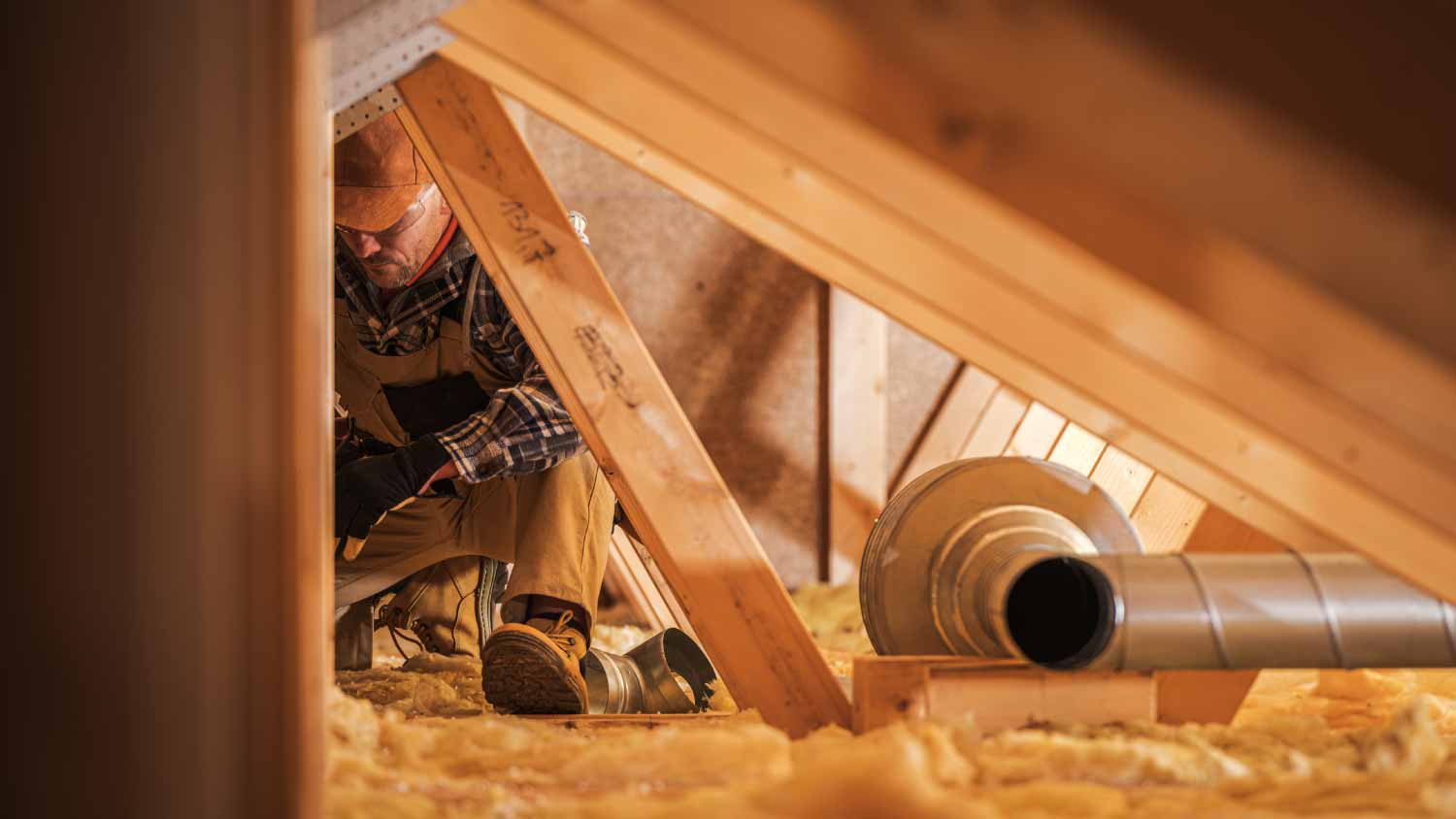
Furnace cleaning is an essential annual chore to keep your home safe. Find out common furnace cleaning costs by type and size of furnace with this guide.
Here’s why an electrician should be your first call for attic fan repairs


Your attic fan is a critical part of your home’s ventilation system, helping regulate the temperature in your house, promoting better airflow, and reducing humidity in your attic. If yours stops working, it’s essential to fix it as soon as possible—and in most cases, you’ll need to hire a pro. Assuming that your attic fan runs on electricity (as many do), it’s best to call a licensed electrician for repairs.
Attic fans are exhaust fans that facilitate ventilation between your attic and the outside of your house. You can mount them to the roof or gable of your home.
In the summer, attic fans push hot air out and pull cool air in, helping regulate the temperature in your home. During the colder months, your attic fan reduces the moisture levels in your attic, which can help prevent mold growth and structural damage.
There are a few types of attic fans, including ones that run on electricity, solar power, or a combination. Some kinds—including passive attic fans and roof turbines—don’t require any energy at all and instead work with the natural airflow in your home.

There are a couple of main benefits of hiring an electrician to work on your electric attic fan. For one, it ensures the job will be done correctly, so you can start using your fan again as soon as possible. It also means that you’re less likely to face attic fan problems in the future.
Also, working with electricity requires specialized knowledge and expertise. If you don’t know what you’re doing, there’s a risk of electrocution, injury, and death. For this reason, getting a pro to complete your attic fan repairs is the safest option.
You can repair it yourself depending on what’s wrong with your attic fan. Simple issues (like a tripped circuit breaker, a damaged belt, or debris stuck in your fan) are relatively straightforward to fix without professional help.
But in most cases, you should leave attic fan repairs to the experts. As we’ve mentioned, this job involves working with electricity, which means there’s a risk of electrical shock and fire. On top of that, attic fans are often in cramped, hard-to-reach places, which makes for an unpleasant and uncomfortable working environment. Between those factors and the cost of tools and supplies, hiring a local attic fan repair pro for this type of work generally makes more sense.
While you should defer to a licensed electrician if you need new wiring or extensive electrical work, you can hire a handyperson for certain attic fan repairs. For example, if your attic fan needs a new cover, belt, or a basic wiring repair, a handyperson can take care of that. On average, handypeople charge $40 to $140 per hour, while electricians charge between $50 and $100.
To diagnose the problem, an electrician will look at the various components of your attic fan, including the motor, belt, thermostat, and wiring. Based on what they find (and the overall condition of your attic fan), they’ll recommend what to do next. For example, if you have a burned-out motor, they might suggest installing a new motor or replacing the entire fan. Installing an attic fan usually costs between $370 and $910, with most people paying about $620.
Repair costs vary depending on the specific issue and the time it takes to fix. But in general, you can expect to pay between $200 and $430 for attic fan repairs, with an average price of around $300. Those costs will increase if you need to bring in a roofer or carpenter to install a new fan.
From average costs to expert advice, get all the answers you need to get your job done.

Furnace cleaning is an essential annual chore to keep your home safe. Find out common furnace cleaning costs by type and size of furnace with this guide.

What you’ll pay in Columbus, OH, for furnace repairs depends on many factors. Here’s a breakdown of what can go wrong and the cost to fix those issues.

Getting AC and furnace replacement done at the same time can lead to huge benefits for your wallet and your home. Here’s everything you need to know.

A whole-house humidifier costs between $400 and $800, but can have an ROI of 40%. Learn if adding this HVAC appliance is worth it for you.

Are you considering adding a whole-house humidifier to your home? Keep reading to learn the pros and cons of a whole-house humidifier.

If you’re having issues with your heating and cooling system, it’s probably time to discuss these heat pump questions with your HVAC pro.